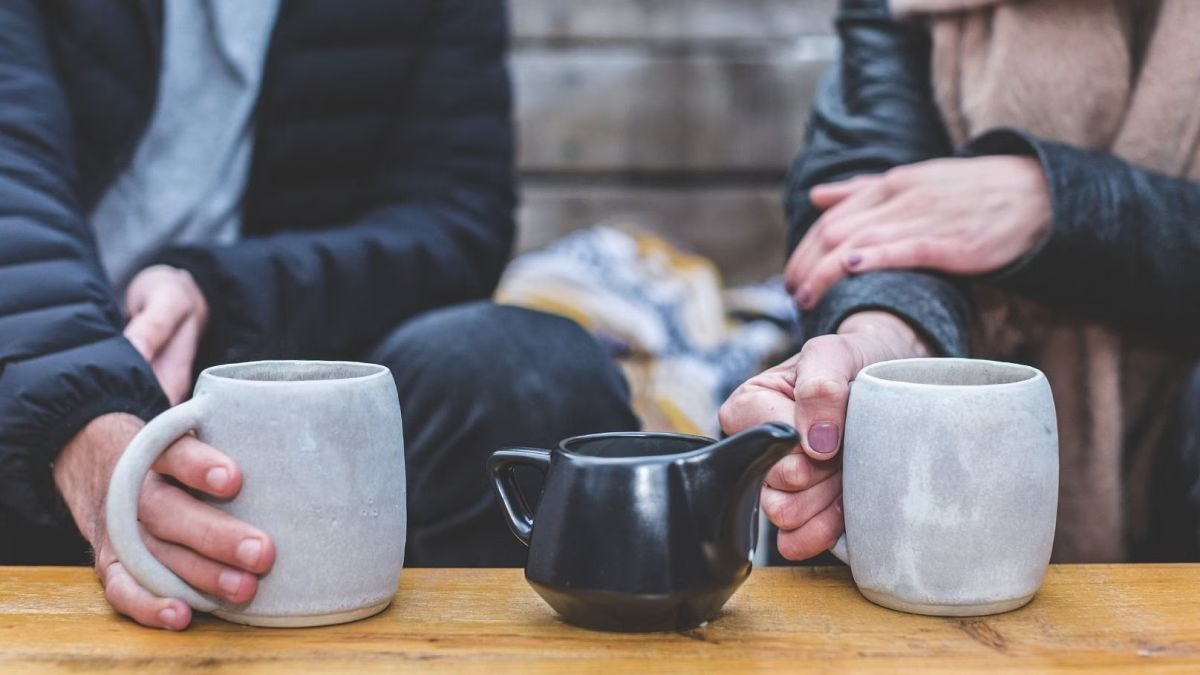Coffee-drinkers around the world scored a win last week after scientists concluded that women who drink coffee in midlife are more likely to age healthily.
Their analysis, presented at the American Society for Nutrition’s annual meeting, found that over 30 years of follow-up, women who drank around three small cups of caffeinated coffee per day were more likely to be physically active and free of chronic health issues or cognitive problems later in life.
“These results, while preliminary, suggest that small, consistent habits can shape long-term health,” Sara Mahdavi, one of the study’s authors and an adjunct professor of nutritional science at the University of Toronto, said in a statement.
Other studies have identified a range of other perks for coffee drinkers – lowering their risk of everything from type 2 diabetes to dying of bowel cancer.
That means the new findings are in line with “old consensus” on coffee’s health benefits, according to Bertil Fredholm, who researched how caffeine affects the body at the Karolinska Institute in Sweden.
“In moderation, coffee has, for the majority, more positive than negative health effects,” Fredholm told Euronews Health.
But how solid is the science on those benefits, really? And does the type of coffee, when you drink it, or even who you are matter?
Here’s what the latest evidence says about what coffee does for your health – and how to know when to put down the mug.
Where do coffee’s health benefits come from?
Coffee is rich in compounds that have anti-inflammatory properties, such as chlorogenic acid, which is also found in kale and apples.
These compounds may improve our metabolisms and how our bodies regulate insulin levels, according to the World Cancer Research Fund.
“Coffee contains antioxidation ingredients and may also lower inflammation, stimulating blood circulation,” Dr Lu Qi, director of the Tulane University Obesity Research Center in the US, told Euronews Health.
It’s also possible that some of this comes from caffeine, which neutralises adenosine – another molecule in the body that makes people feel tired throughout the day or after a difficult task.
“Other caffeine sources, such as tea, have similar effects,” Qi added.
But not all caffeinated drinks are the same, and loading your coffee with sugar and milk may offset any benefits.
In Mahdavi’s study, for example, each additional small glass of soda was tied to a 20 per cent to 26 per cent lower likelihood of healthy ageing.
Does timing matter?
Taking your coffee break earlier in the day could maximise the health benefits, Qi found in a study published this year in the European Heart Journal.
People who drank coffee in the morning had lower rates of death, including from heart problems, than those who drank it all day or not at all, according to the analysis of nearly 41,000 people.
Later coffee consumption may disrupt the circadian rhythm, or the internal body clock, which helps regulate people’s metabolisms and how much they eat, the study suggests.
But the findings have some limitations, namely that outside factors might influence the results. For example, morning coffee drinkers could be more likely to have jobs that make it easier to stay healthy, independently of their caffeine habits.
“We can’t eliminate the possible impact” of other factors, Qi said. “While waiting for further studies, our study supports a ‘morning-type’ drinking”.
Are there any health risks from coffee – and how much is too much?
For years, the World Health Organization (WHO) thought coffee might cause cancer. However, after reviewing more than 1,000 studies, it concluded in 2016 that there isn’t enough evidence to suggest coffee is carcinogenic.
But at the time, the WHO warned people against drinking very hot coffee – or any other beverages – because high temperatures could increase the risk of oesophageal cancer.
That doesn’t mean coffee-lovers should double down, though. Researchers don’t know exactly where coffee’s benefits taper off, or at what point healthy consumption turns into overkill.
“There is not a clear line,” Qi said, but he suggests people stick to “moderate” levels of two to three cups per day.
The type of coffee also matters. Unfiltered coffee, such as Swedish boiled coffee and espresso, contains diterpenes, which are substances that raise people’s cholesterol. But filter coffee is free of them, according to the Karolinska Institute.
Is coffee good for everyone?
In a word, no. Qi said people with high blood pressure or sleep problems may want to reconsider their caffeine intake, because “coffee addiction may adversely affect certain systems such as cardiovascular and sleep disorders”.
Doctors also recommend that pregnant women limit their caffeinated coffee intake to reduce the risk of miscarriage and poor birth outcomes.
Caffeine lingers in the blood for much longer during pregnancy, and some studies indicate that too much of it could be tied to low birth weight, preterm birth, or stillbirth.
Meanwhile in another study, Mahdavi found that genetics can play a role in how coffee affects people’s health, meaning those with lower caffeine tolerance may want to hold off on drinking too much.
What’s the bottom line?
Most people can savour their morning cup of coffee, knowing it is safe and maybe even a healthy part of their routine.
But if someone doesn’t already drink coffee, the evidence doesn’t suggest they should pick up the habit for health reasons.
And even if coffee does offer some perks, they don’t compare to the benefits of a nutritious diet and regular exercise, Mahdavi said.
“The benefits from coffee are relatively modest compared to the impact of overall healthy lifestyle habits,” she said.






